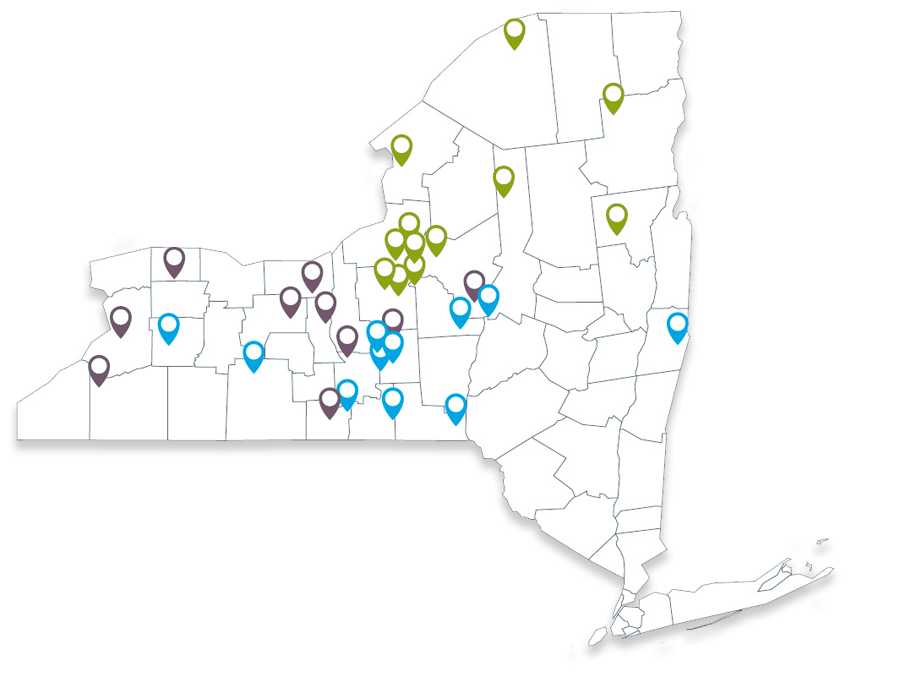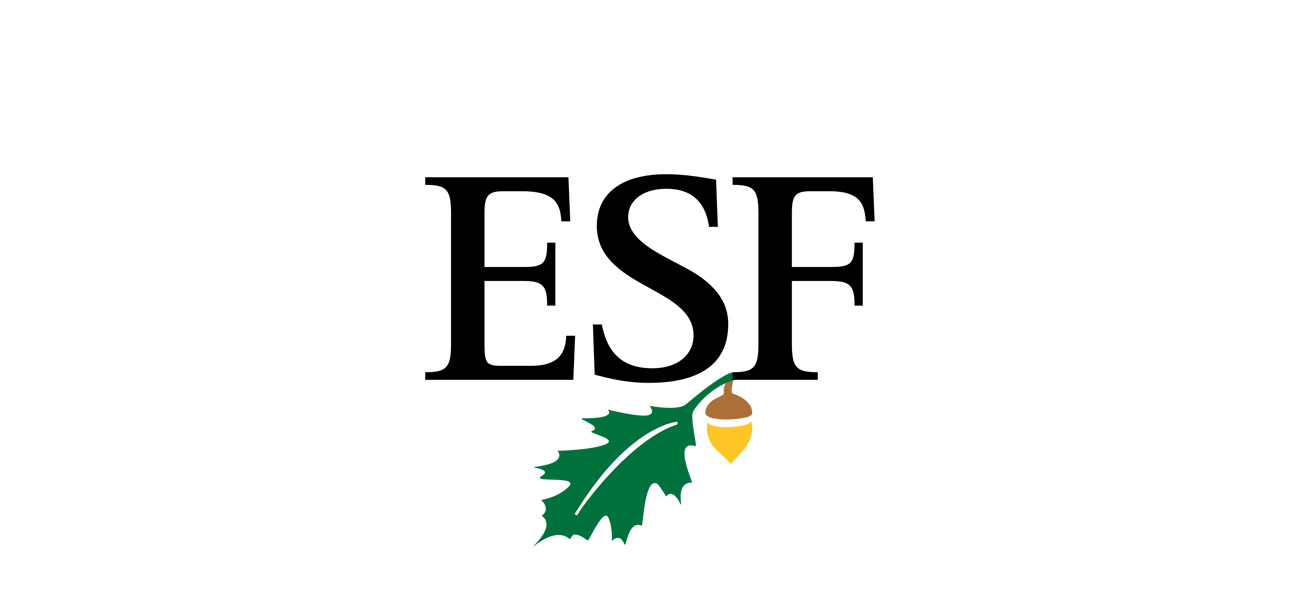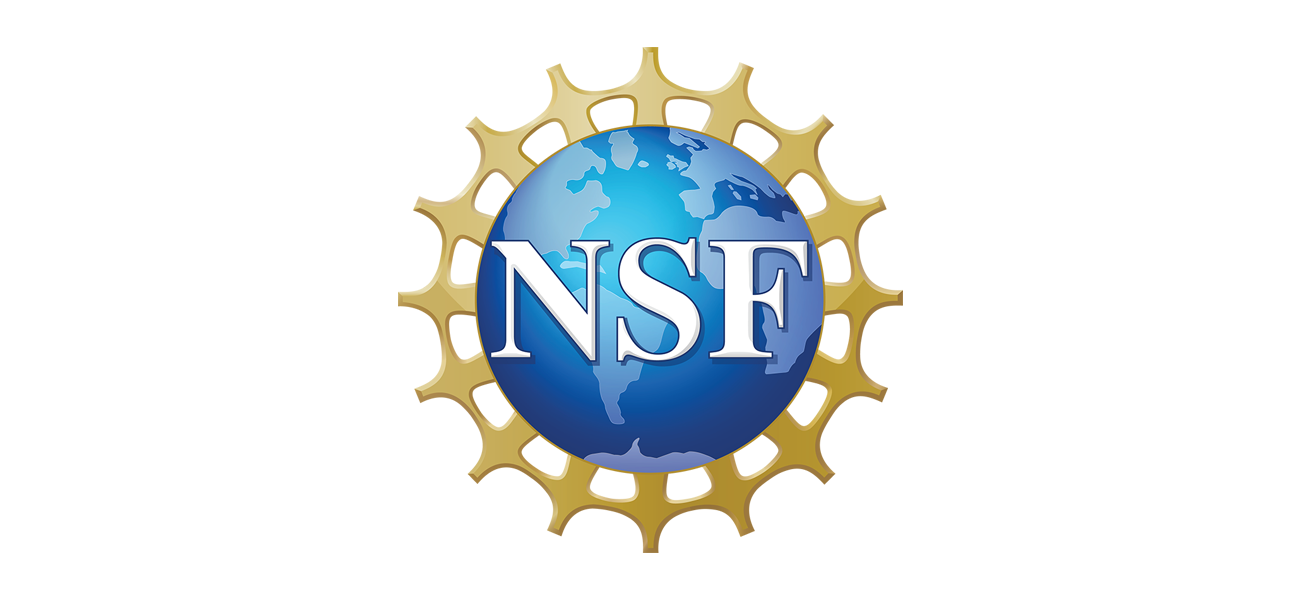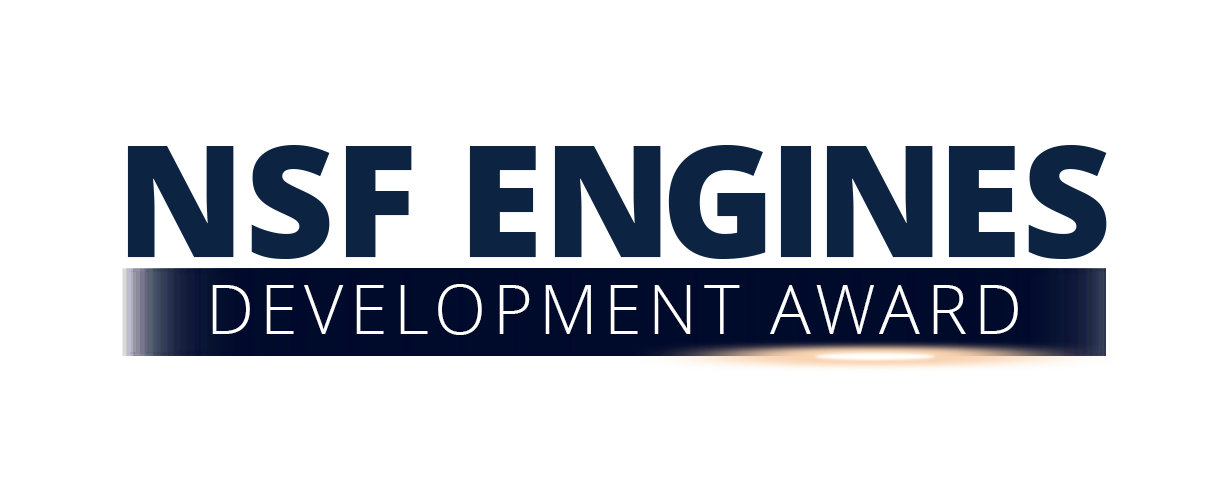Methodology
Upstate NY is a geographically, socially, economically, and politically diverse landscape. Our team has considerable expertise in understanding the factors that mitigate public support, trust, and understanding of science (including energy and environmental policy), as well as public opinion and its checks on policymakers.

Discovery
To ensure fruitful conversations that respect intrinsic differences and cultivate trust, a preliminary activity for Upstate 2.0 is a survey of Upstate residents (via address-based sampling). Survey results will help our Engine to:
Partner identification
Identify public knowledge and understanding of baseline CSB components to develop a complete picture of who the CSB will serve and their needs to inform ecosystem development.
Public messaging
Design public messaging strategies to increase implementation and acceptance of our proposed bioeconomy, including public willingness to pay and support policies to inform translation of innovation into practice.
Partner understanding
Understand what factors are most influential in Upstate NY workers’ career pathways including job attributes, perceptions of training and job difficulty, and pair this information with current education levels, job and pay, location, etc. This will inform our workforce development plan.
Following the survey, the leadership team and senior personnel will visit individuals and organizations with additional site visits added as needed. Through our Cornell Cooperative Extension and ESF training programs, we know firsthand how many individuals in Upstate NY may feel uncomfortable in a formal setting but eagerly engage in their own space. Site visits are therefore key to ensuring inclusion of all voices in our plan. The site visit routes are intended to highlight the region’s diversity, potential, and needs.
The leadership team will assemble draft white papers after initial site visits that identify areas where further information is needed, which will inform efforts in Year 2.
Workshops
The goal of the Year 2 workshops is to pinpoint the exact research, workforce development, and innovation opportunities that Upstate 2.0 will support. We envision having at least one large and several small workshops on specific CSB themes. Support (to defray the cost of attending workshops, including lost-work time) will be available to economically disadvantaged and underrepresented minority participants. These workshops will identify problems to address with use-inspired research, how to translate research into real-world opportunities, and how to consider the needs across a CSB supply chain.
Economy-Spanning Workshops
Workshops will occur at a central, on-campus event hosted by Cornell that welcomes regional partners. Work sessions will be designed around driving questions and facilitated by team members. One workgroup might tackle the question “What does a 2050 workforce in sustainable forestry look like and how do we achieve it?” Another may ask “Where are the supply chain weaknesses to produce biomaterials, and what substitute feedstocks and methods could be employed?”
Thematic Workshops
Thematic workshops will be smaller, occur throughout the region, and focus on specific themes, such as Envisioning Next-Generation Forestry, Robotics to Support Sustainable Intensive Agriculture, Designing Biobased Products from Upstate Resources, and Planning for Climate-Smart Economy Workforce Needs. These workshops will be held online and in person at SUNY ESF depending on the number of people and the preferences of key participants.
Translation of Innovation into Practice
Upstate 2.0 will facilitate the translation of use-inspired research into practical innovation and then practice by utilizing the deliberate and replicable process for venture acceleration developed by Cornell’s Center for Regional Economic Advancement (CREA). CREA has successfully cultivated the economic potential of new ideas, products, and services across the region, nation, and globe through its own programming and as the Upstate NY I-Corps Node, which has just expanded into a new NSF Innovation Hub for the Interior Northeast Region (IN I-Corps). In Type I, CREA will establish the framework and secure commitments of members (venture capitalists, researchers, experienced entrepreneurs, representative from marginalized communities, non-governmental organizations, industry leaders, and community economic development partners) to an Innovation Translation Advisory Board (ITAB). The ITAB will meet regularly to identify, evaluate, and seat each innovation into one of three tracks:
Venture Development
Commercialization via a startup pathway, a multi-step process leveraging existing regional incubation resources with milestones for Market Identification, Business Model Design and Validation, Venture Development, Launch, Capitalization.
Industry Development
Commercialization via a corporate innovation pathway within an established company to align with the innovation’s development stage and economic potential.
Concept Development
Further develop translation readiness, while monitoring opportunities for commercialization.
Workforce Planning
Upstate 2.0 will catalyze job creation through transdisciplinary workforce and entrepreneurship training from biomass production in agriculture and forestry systems to high- and low-tech maintenance jobs to support automation, robotics, and AI implementation, and to novel value-added processors. For example, NYS proposed rapid expansion of its nascent bioeconomy under the Climate Act: a target goal is to supply one billion gallons of biobased products by 2030. This goal is particularly ambitious given the stagnant and aging workforce. To achieve these goals, we will leverage and amplify workforce development efforts currently underway by New York State Energy Research and Development Authority (NYSERDA) and build on the success of Black Entrepreneurs in Training, Diversity in Climate Tech, and Women Entrepreneurs programs run by CREA throughout the region.
Upstate 2.0 equity-centered workforce training will occur through partnerships with Cooperative Extension and higher education institutions in the region. To foster a more inclusive workforce and innovation system we will leverage our core partnerships to provide training fellowships for underrepresented and marginalized students. We will strengthen partnerships with the existing network of Louis Stokes Alliance for Minority Participation (LSAMP) programs in eight educational institutions in the region spanning community colleges to PhD granting universities. Upstate 2.0 will support LSAMP mentoring and link LSAMP fellows with research, internship, and job opportunities. Our Phase I work will solidify these existing partnerships and develop training working groups to prepare for Phase II.






